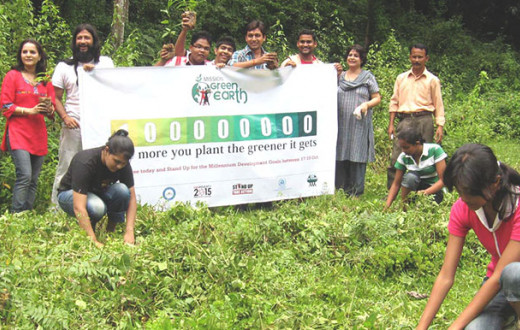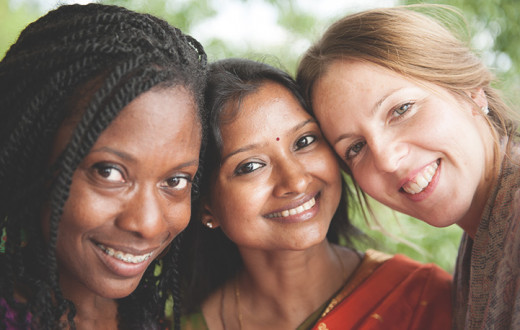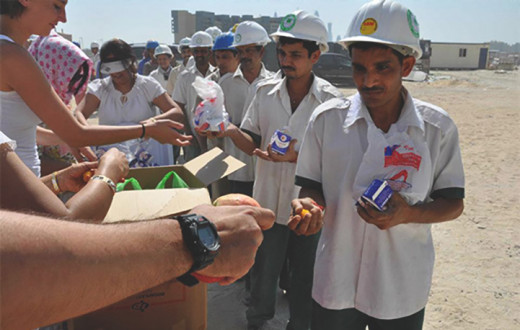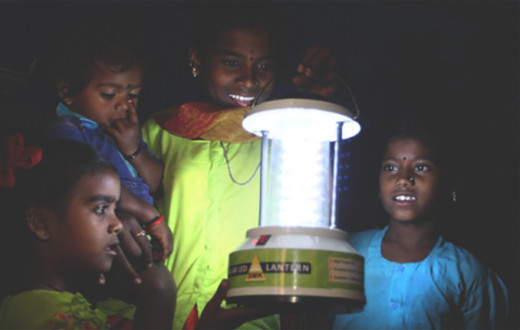“Inside every culprit, there is a victim crying for help. That person is also a victim of ignorance, small-mindedness and lack of awareness. It’s the stress, lack of broad vision about life, lack of understanding, and bad communication that leads to violence in society.”
~ Gurudev Sri Sri Ravi Shankar
The Prison Program program aims to transform the lives of people working in or incarcerated within the criminal justice system – the perpetrators, the law enforcers and the victims. It works in tandem with probation departments, family and juvenile court systems, administrators and correctional officers of penal institutions and law enforcement departments.
The basic premise of the Prison Program is that no individual is really ‘bad’ but takes to crime due to external stressors which they are unable to deal with effectively. Under conditions of confinement, violent tendencies and negative emotions are intensified, causing further damage to the psyche of inmates.
The Prison Program teaches skills that reduce stress, heal trauma and provides practical knowledge of how to handle negative emotions in order to live to one's highest potential and contribute to society in a positive way.
Impact:
Active in over 45 countries
and continues to grow.
Over 100 prisons
have implemented the program in India
More than 500,000 prison inmates
have been transformed through these programs.
Featured stories:
- India
- Argentina
- South Africa
- Taiwan
- United States
Since 1999, more than 120,000 inmates from prisons in India have undergone the Prison Program with good results. In Tihar Jail - Asia's largest prison, over 48,000 convicts and 130 prison staff have benefited from the program. Two courses continue to be conducted every month with follow-up sessions every weekend.
”In a pessimistic state of mind, I was introduced to the basic course of The Art of Living. It was a revelation, an eye-opener. As I had left the dreams of being released behind, so also the fear of not ever going back outside also left." – Sunil, a past inmate
"Inmates and officers have derived immense benefit by way of physical, mental, spiritual and social well being." - D.R. Karthikeyan, Former Director General, National Human Rights Commission
SRIJAN - Social Rehabilitation of Inmates in Jail and Aiding the Needy, is a project designed to channelize hidden talents in a productive way. It not only allows inmates to express their creativity acting as an outlet for stress, but also gives them a set of skills and lets them earn a respectful living. Over 1800 prisoners and 1300 reformed militants have been trained and have found opportunities to regain their self-worth.
This project produces items like paper bags, office stationery, lampshades, photo frames, and boxes. These are then supplied to corporates and departmental stores and also exported to other countries.
SRIJAN project in Tinsukia Jail, Assam provides Electrical & Carpentry training to inmates. In Central Jail in Bangalore, the project “Punarnava” is supporting 45 female inmates in making and selling incense sticks, gift articles and apparel.
Since 2006, thousands of Argentine prisoners have completed regular Art of Living courses including Advanced Meditation Courses (Part 2) and pre-Teachers Training Course. 15 prisons in the province of Buenos Aires, 2 in Mendoza, Chaco, Tucuman, Rio Negro, Santa Fe and Tierra del Fuego participate in the program. In one prison, there is an “Art of Living Wing” where inmates who do their practices regularly are housed to give them the space to meditate without disturbance.
Over 9,000 South African prisoners in 11 prisons have benefited from the program since 2002. It has also started in Zimbabwe, Tanzania & Kenya through recommendations from the Correctional Services in South Africa.
A research carried out on the impact of the Prison Program on the behavior and health of the inmates showed a remarkable decline in the anger and aggression levels of inmates.
- 75.6% shared improvement in anger levels
- 68.3% said there was an improvement in clarity of mind
- 75.6% reported increase in energy levels and 2% saw no change
- Quality of sleep improved for 78%
Through the introduction of Taiwan After-care Association, the Prison Program was brought to the Taipei Tu-Chen Detention Center in 2004. In a year, more than 1000 prisoners participated and it is now conducted regularly in Taipei Tu-Chen and Taichung Detention Center. An effectiveness study conducted with 600 prisoners indicated that over 80% of inmates reported benefits like higher clarity of mind, more emotional stability and better sleep.
In Lancaster, CA, along with the Prison Program, a study was conducted in 2001 with inmates between ages 13-18 and who were offenders of violent crimes with deadly weapon, murder, rape, armed robbery and terrorizing threats against others. The result of this study showed a significant decrease in anxiety that in turn led to the decrease in anger, fear and reactive behaviors that were previously reported. Number of minors in incident reports decreased significantly within the four-month period that these courses were taught. Staff reported there were no night-time disturbances on the evenings that the Sudarshan Kriya and meditations were conducted. These results were in spite of a change of director, a massive changeover in staffing, and significant deficits in staffing ratios during this time period.
“Wards who entered camp with their hard, angry composures and delinquent attitudes were transformed by the end of one week into happy, smiling youngsters. . . . In the 33 years of my probation experience I have never seen such responses.” — William Richardson, Former Director of Los Angeles County V.A.P. Anger Management Program, Camp Michael Smith, Camp Francis Scobee, Lancaster, CA







